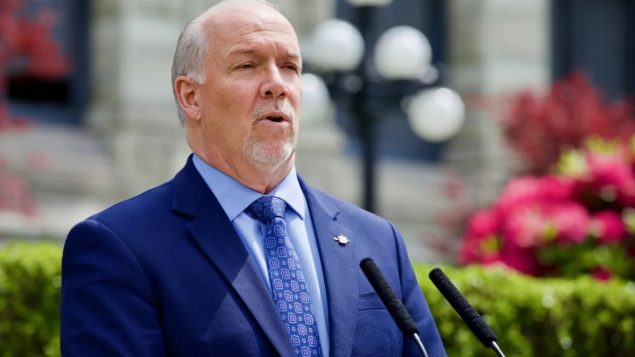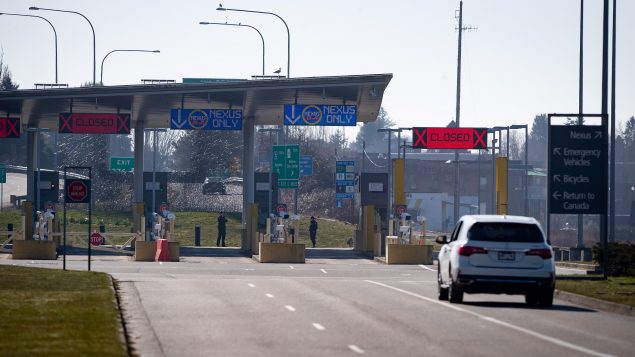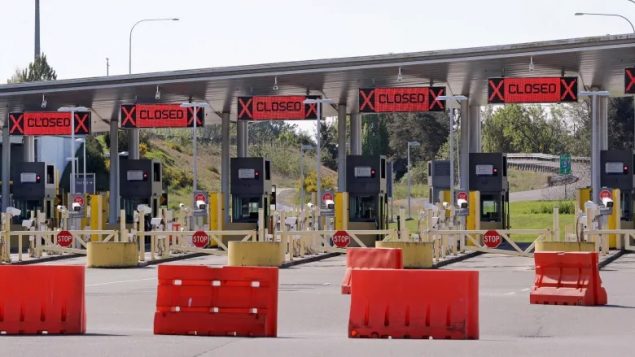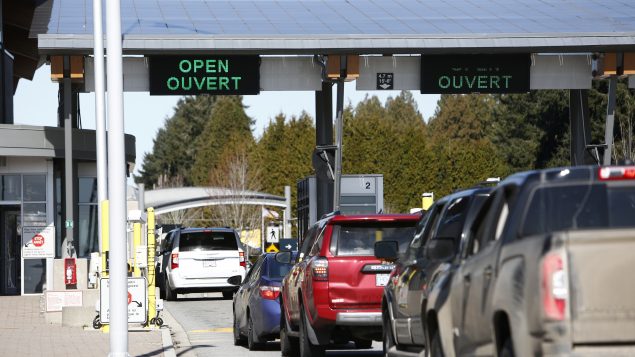British Columbia’s premier says he is concerned by reports that U.S. residents are skirting rules and vacationing in the province as COVID-19 cases spike in the U.S.
The Canada-U.S. border was closed to most travellers in March, but Americans travelling for non-discretionary purposes, such as returning home to Alaska–under the so-called “Alaska loophole” rule, have been granted permission to enter Canada.
John Horgan said he’s heard stories from residents across the province about Americans abusing the rule and he is not happy about it.
“Health-care workers have put themselves at risk to protect all of us and we do not want to throw that away for queue jumpers, for people who want to say they’re going somewhere and do something else,” Horgan said Thursday during a news conference about a hospital expansion in Richmond.
“If you want to get to Alaska, we do not want to impede, but you should go directly.” Horgan said.

Premier John Horgan, pictured in June, said Thursday that keeping the Canada-U.S. border closed is important to safeguard B.C.’s progress in controlling the spread of the coronavirus, especially as the U.S. sees surging case numbers. (MIke McArthur/CBC)
The CBC’S Joel Ballard and Liam Britten report that Horgan’s fears did not appear to be shared by B.C.’s provincial health officer, Dr. Bonnie Henry.
Henry told reporters the Canadian Border Service Agency and others have told her the majority of people seen driving around with U.S. license plates are Canadians living in the U.S. who have returned home in recent months.
Henry said she had heard stories of people exploiting the “Alaska loophole” but in very small numbers.
Meanwhile, the CBC’s Sophia Harris reported today that some Canadians driving cars with U.S. licence plates say they’ve endured vandalism, harassment and even a minor assault from fellow Canadians convinced that they’re Americans illegally in Canada.
While Harris reported on incidents across the country, resistance to U.S. visitors is especially strong in B.C.
A recent survey by Destination Canada found that just six per cent of people in the province “somewhat or strongly agreed with welcoming U.S. visitors”–a view that was shared across the country, though to a lesser degree.

A British Columbia motorist approaches the U.S. port of entry into Blaine, Wash., at a very quiet Douglas-Peace Arch border crossing in March. (THE CANADIAN PRESS/Darryl Dyck)
In any case, there appears little likelihood that the border will be opening any time soon.
As the CBC’s Aaron Wherry reported on Wednesday, when Leger Marketing asked Canadians in May when they thought Canada should reopen its border with the United States, 47 per cent of respondents said “not before the end of the year.”
Statistics show a huge decline in border travel since restrictions were imposed in March.

Most lanes have remained closed at the Peace Arch border crossing between B.C. and Washington State since border closures took effect in March. (THE ASSOCIATED PRESS Elaine Thompson)
The CBSA told CBC News that border crossings were down across Canada by 86 per cent via land and 96 per cent at airports during the week of June 15-21–compared to the same time a year ago.
The CBSA said the numbers were consistent with previous weeks.
With files from CBC News (Joel Ballard, Liam Britten, Sophia Harris, Philip Ling, Ashley Burke, Aaron Wherry), RCI







For reasons beyond our control, and for an undetermined period of time, our comment section is now closed. However, our social networks remain open to your contributions.